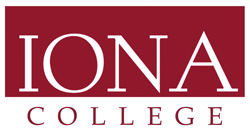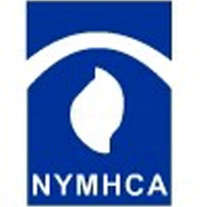Testimonials
Harry did an amazing job! He was very knowledgeable.
Christine Watkins, LPC
Harry was very knowledgeable and offered valuable information and tips. He was extremely patient with a great sense of humor. He offered great examples of real-life scenarios.
Maureen Charalambous, OTR/L
Harry is a wonderful instructor, taking the time to answer everyone’s questions and model real time EEG practices. All the information felt new and important, rather than repetitive as in other trainings. A great foundational course to build or for future neurofeedback work.
Cynthia Marsh, LMSW
Harry is great!
Knowledgeable, helpful, friendly, and professional!Robert Meyers Psy.D.
Mr. Campbell did an excellent job of connecting the theoretical knowledge to real-world application and examples. He provided thorough answers to student questions.
Gera Anderson Psy.D.
Again, my sincere thanks! You have helped me so much through the years with equipment, biofeedback training and troubleshooting of my biofeedback equipment when I’ve gotten stuck.
Recently you saved the day again by finding a solution to my biofeedback problem. I think that we need to get you a hero’s cape!
Wishing you All the Best!
Nancy Gordon-Green, RN
Owner/Clinician at Biofeedback and Stress Management Services of Greater Hartford L.L.C
Manchester, Connecticut, United States
©Association for Applied Psychophysiology & Biofeedback http://www.aapb.org
PROFESSIONAL ISSUES
Biofeedback Certification Institute of America Educators Who Have Made a Difference (Part 2) Fred Shaffer, PhD, BCIAC,1 and Judy Crawford2
‘Truman State University, Kirksville, MO; 2BCIA Director of Certification, Wheat Ridge, CO
Keywords: biofeedback, certification, education, neurofeedback
The Biofeedback Certification Institute of America values its partnership with the dedicated educators who teach biofeedback and neurofeedback to our certificants. This article is the second in a series that introduces the dedicated educators who have helped us succeed in our mission to protect the welfare of biofeedback consumers, to provide credibility to biofeedback practitioners, and to advance the field of biofeedback. This article also reports on the international growth of biofeedback and neurofeedback training programs.
This article is the second in a series that celebrates the contributions of our finest teachers. An anonymous author wrote, “A mind once stretched by a new idea never regains its original dimensions.” The educators featured in this series have challenged the minds of thousands of students. They have supported Biofeedback Certification Institute of America (BCIA) certification by teaching our blueprints, modeling our ethical standards, and mentoring new professionals. This article highlights the contributions of Celeste DeBease, Harry Campbell, Les Fehmi, Tony Hughes, Erik Peper, and Leslie Sherlin. Future issues will honor the achievements of educators in biofeedback, neurofeedback, and pelvic muscle dysfunction biofeedback. We also celebrate the opening of two university training programs in biofeedback and neurofeedback, which promise to provide further momentum to BCIA’s University Initiative. Celeste DeBease has taught biofeedback at Widener University at the Institute of Graduate Psychology, in Celeste was offered a job in biofeedback at Northwestern hospital soon after she graduated. Her mentors were Marie Stoner and Frank Echenhoffer. Celeste’s vision for the future of BCIA and the field is that as the field grows, the number of subspecialties will grow and the level of expertise will deepen. As a psychologist, she sees biofeedback technology as the modern-day psychoanalytic couch. It is a way to get in and uncover parts of ourselves that we might not have conscious access to and to mirror those parts to ourselves. Harry Campbell has taught biofeedback/neurofeedback to more than 5,000 students in more than 12 years. His specialties are biofeedback for stress management and muscular pain as well as alpha/theta neurofeedback for deep relaxation. He has taught for Biofeedback Resources International and the American Biofeedback Corporation at BCIA seminars in New York. He has also trained staff at universities, colleges, hospitals, military bases, and veterans’ hospitals across the United States. Adam Crane, who also mentored Harry, came to his high school and demonstrated biofeedback to Harry’s class for Science and Technology Day. Harry was amazed and intrigued at how the body’s reaction to thoughts could be measured and fed back. He had always been interested in science and technology, so this was very exciting to him. Harry started working part time for Adam in his biofeedback instrument business after school and continued throughout college. He continued to work with Adam after graduation.
PSYCHOLOGY DEPARTMENT
To Whom It May Concern:
IONA College 715 NORTH AVENUE, NEW ROCHELLE, NY 10801-1890 PHONE: (914) 633-2000
It is my pleasure to write this letter on behalf of Harry L. Campbell, President of Biofeedback Resources International. I invited Mr.Campbell to give a presentation to graduate students in my course, Stress: Affective, Cognitive and Behavioral Components. Mr.Campbell gave an excellent presentation using relevant visual aids and biofeedback equipment. He covered the topic in a comprehensive manner and explained the various aspects of biofeedback in a way that greatly enhanced the students’ understanding. In addition, the presentation included an interactive component in which some of the students volunteered to be part of a demonstration of various biofeedback techniques.
Overall, it was a very informative and stimulating presentation. I plan on inviting Mr. Campbell to give a presentation to another of my graduate classes in the future and would recommend him without reservation for a presentation on biofeedback.
Sincerely
Pauline Jirik- bb, Ph.D Professor, Psychology Department Coordinator,
Psychology BPS and Certificate Programs Iona College New Rochelle New York 10801.
Dear Mr. Campbell,
On behalf of the Westchester Chapter of NYMHCA, we would like to thank you for your presentation at our meeting titled Adding Biofeedback to a Mental Health Practice. The talk was very informative, interesting, and held the attention of all those in attendance. The examples you provided gave members a clear sense of how biofeedback works and how it can be included in a mental health practice.
I would like to thank you for your professionalism and for being well prepared with your own projector when ours did not work. We would be delighted to have you attend future meetings, and repeat this presentation at some point next year for interested members who might have missed your recent talk.
Thanks again, and if you have any questions, please contact us.
Sincerely, Tara Maloney, M.A Westchester NYMHCA Chapter Co-coordinator
John L. Theodore, Ph.D Westchester NYMHCA Chapter Co-coordinator
North Carolina State University is a land-grant university and a constituent institution of The University of North Carolina
NC STATE UNIVERSITY
Mr. Harry L. Campbell, BPS. BCIA-C, President
BioFeedBack Resources International Corporation
109 Croton Avenue, Suite
5 Ossining, NY 10562Dear Mr. Campbell:
Department of Social Wor 10 Current Drive. C. B. 763 Raleigh, NC 27695-7639
919.515.2492 919.515.4403 (fax no.)
November 28, 2010
Thank you very much for your presentation to my graduate class on Human Behavior and the Social Environment. I greatly appreciated your time and expertise, as did the students.
The students particularly enjoyed the experiential aspects of your presentation along with the handouts. They received a succinct professional exposure to a treatment modality many of them may use in their own professional practice after graduation.
Thank you for providing the class with such relevant and up-to-date information about a treatment modality that is in increasing demand. I look forward to your future work with students in our program.
Best regards,
Willa J. Casstevens, PhD, LCSW, MSW Assistant Professor







